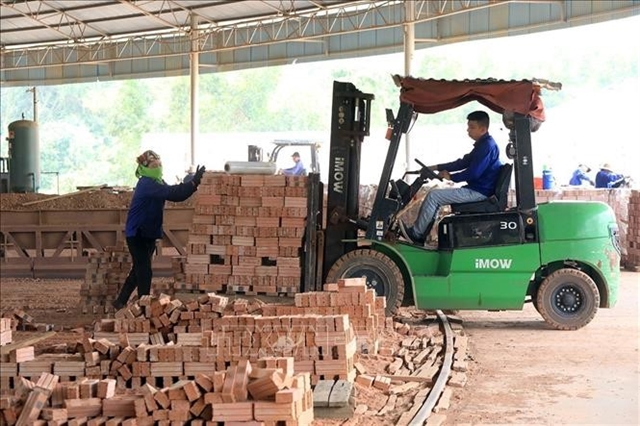Prime Minister Phạm Minh Chính has issued an urgent directive No. 85/CĐ-TTg dated June 10 in response to the sharp and abnormal surge in construction material prices, which is threatening the progress of key national infrastructure projects.

HÀ NỘI — In response to the sharp and unusual rise in construction material prices that is jeopardising progress on national infrastructure projects, Prime Minister Phạm Minh Chính has issued an urgent directive (No. 85/CĐ-TTg dated June 10), calling on ministries and local authorities to swiftly implement measures to stabilise prices, secure supply and crack down on hoarding and market manipulation.
The directive highlights that prices of key materials such as sand, gravel, stones, bricks and backfilling materials have surged recently. The primary causes include bottlenecks in licensing mineral extraction, hoarding, price inflation, and even signs of market manipulation.
These developments pose a direct threat to national transport infrastructure projects, housing schemes, and local public works, potentially undermining the Government’s 8 per cent GDP growth target for 2025 and the socio-economic development strategy for 2026–30.
The Ministry of Construction has been tasked with closely monitoring market developments and promptly updating and publicising construction material prices to reflect actual costs. It must also urgently review material demand across localities and propose appropriate mining site planning, to be completed by June 20, 2025.
In parallel, construction material enterprises are encouraged to cut production costs, invest in modern technologies, and develop alternative products such as non-fired materials.
The Prime Minister emphasised the goal that non-fired building materials must account for at least 35-40 per cent of total use by 2025, thereby reducing CO₂ emissions by more than 2.5 million tonnes annually.
The Ministry of Natural Resources and Environment has been instructed to simplify and shorten procedures for issuing licences to exploit common minerals. A decree guiding the implementation of the Law on Geology and Minerals must be finalised by July 1, 2025.
Related procedures such as land allocation and environmental impact assessments are to be streamlined, with processing time and costs cut by at least 30 per cent. New mining sites must be planned, evaluated for reserves, and brought into production on schedule.
In a significant shift, the Prime Minister ordered that contractors be allowed to directly access mining rights, removing intermediary steps that often give rise to corruption. Localities will be held accountable for any mismanagement or lax oversight. The process of auctioning mining rights must be closely supervised to prevent hoarding and group interests.
The Ministry of Industry and Trade has directed market surveillance forces to clamp down on hoarding, price gouging, and the sale of unverified construction materials. Meanwhile, the Ministry of Public Security will investigate and strictly handle acts of market manipulation, protection rackets, corruption, or collusion in the extraction and trading of construction materials.
The Government Inspectorate will conduct a comprehensive audit of supply sources in key provinces and cities. Local authorities are required to proactively plan and license mining operations and adjust capacity to promptly address local shortages.
Prices must be updated and announced periodically, or immediately upon abnormal fluctuations, ensuring transparency.
The Prime Minister also encouraged innovation in material production, including the use of artificial sand, processed marine sand, and recycled waste for construction purposes. These initiatives are expected to ease pressure on natural resources while contributing to long-term stability in the construction material market. — VNS





